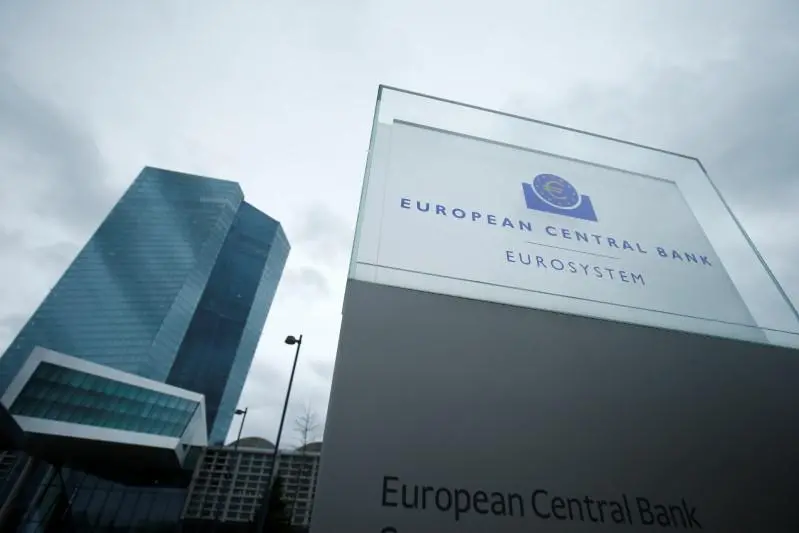PHOTO
Euro zone government bond yields were mixed on Tuesday while money markets slowly increased their bets on another rate hike by the European Central Bank.
Investors are almost evenly split on whether the ECB will raise interest rates on Thursday with euro short-term rate (ESTR) forwards pricing in a 45% chance of a 25 basis point (bps) hike, from around 40% the day before.
Money markets price in a bit more than an 80% chance of an ECB move by year-end, with no further tightening afterwards. It was at 75% on Monday.
German investor sentiment unexpectedly improved in September, according to the economic sentiment index of the ZEW economic research institute.
The September ZEW and other surveys, "support our euro area recession call," Nomura economists said in a research note.
"The September ZEW was mixed in Germany, with positivity in the expectations component, but it showed continued weakness in the euro area as a whole," they added.
Germany's 10-year government bond yield, the benchmark for the euro area, dropped 0.5 bps to 2.63%.
German wholesale prices fell for the fifth month in August due to lower prices for mineral oil products, data from the federal statistics office showed on Tuesday.
Oil prices recently triggered concerns about the inflation outlook. Brent crude futures rose about 1% on Tuesday, boosted by a tighter supply outlook.
Analysts argued that investors were positioning for Thursday's ECB policy meeting and crucial U.S. inflation data on Wednesday.
"A hawkish tone from the U.S. CPI data and a hike from the ECB could give front-end rates a larger lift this week and provide the ingredients for a brief curve-flattening episode," said Benjamin Schroeder, senior rate strategist at ING.
U.S. inflation figures could add to a growing view that the Federal Reserve will keep interest rates steady when policymakers meet next week.
Recent comments from Fed officials have indicated the Federal Reserve is content to keep rates steady at its next policy meeting on Sept. 19-20 but is not ready to declare the war on inflation is over.
Italy's 10-year government bond yield, the benchmark for the euro area periphery, fell 1.5 bps to 4.38%.
The spread between Italian and German 10-year yields - a gauge of investor sentiment towards the euro zone's more indebted countries – was at 174 bps, just off its widest level in two months.
Some market participants expect an acceleration of quantitative tightening measures – which involve the ECB reducing its bond portfolio – might hurt peripheral bond prices.
Bond yields move inversely with prices.
ECB hawks have called for ending reinvestments from bonds bought under the 1.7 trillion euro ($1.82 trillion) Pandemic Emergency Purchase Programme (PEPP) earlier than the current end-2024 deadline.
(Reporting by Stefano Rebaudo, editing by Ed Osmond and Susan Fenton)





















